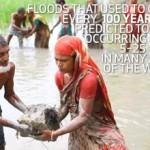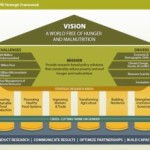From extreme weather events to rising and highly volatile food prices, poor and vulnerable populations are subject to a bevy of shocks that threaten their basic food and nutrition security. In the face of global climate change and other recent food price spikes, it seems to many that such events are occurring more and more often. Yet are shocks, indeed, impacting populations with greater frequency and severity or is it a case of misperception?
In their 2020 Conference Brief, Are Shocks Actually on The Rise? A Selective Review of Five Types of Shocks, authors Laura Zseleczky and Sivan Yosef take stock of five types of shocks—conflicts, natural disasters, climate change, food price volatility, and health crises—in the context of their impacts upon agriculture and food safety, as well as gauging their frequency and severity in recent decades.
The authors concluded:
- Conflicts are not increasing in frequency, though the “deadly nature” of conflicts is a concern going forward.
- Though there is a dearth of information on drought’s direct impacts on food security, its secondary impacts on food security, such as food price spikes, are a serious concern.
- “Annual extreme precipitation events” have been occurring with greater frequency in recent decades.
- Intensity of hurricanes and cyclones has increased, possibly due to rising sea surface temperatures.
- Earthquake frequency has remained largely unchanged, though increasing population density in urban areas may cause an increase in earthquake-related fatalities in the future.
- Climate change is “unequivocal,” though its impact on food security will vary based on elements such as “mitigation efforts, income, and population growth.”
- Regardless of spikes and valleys in recent years, food prices are expected to remain high and volatile for at least the next decade.
- Zoonotic diseases and mycotoxins are an increasing threat.
The brief drew attention to the importance of research in informing policies that protect vulnerable populations and help them to weather future shocks. The brief also suggested investment in “early warning systems, infrastructure, education, and sustainable agriculture” to help people shore up against the shocks now and in the years to come.





